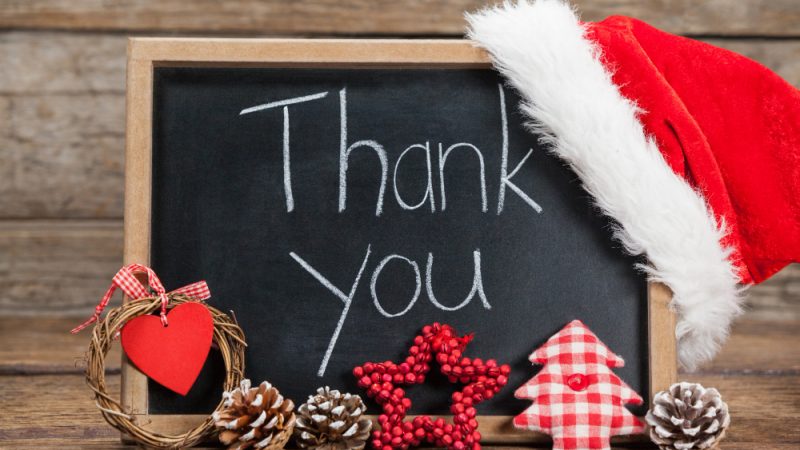When you travel to Dutch-speaking regions or interact with Dutch speakers, knowing how to say thank you in Dutch can enhance your experience and make interactions smoother. Expressing gratitude is a universal gesture that bridges cultural gaps and leaves a positive impression. This comprehensive guide will introduce you to ten simple yet effective ways to say thank you, helping you sound like a native and show your appreciation in various contexts.
Thank You in Dutch: Dankjewel
The phrase dankjewel is the most common and versatile way to say thank you in Dutch. It is used in informal settings and is perfect for everyday interactions with friends, family, or acquaintances.
Pronunciation: thank-you-vell
When you receive a small favor, like someone holding the door for you or giving you directions, dankjewel is your go-to phrase. It’s friendly and widely understood, making it a great starting point for any traveler.
Thank You in Dutch: Dankuwel
In more formal situations or when speaking to someone you wish to show extra respect, use dankuwel. This phrase is a formal version of thank you in Dutch and is suitable for professional or polite contexts.
Pronunciation: dahnk-oo-vell
Dankuwel can be used in business meetings, formal gatherings, or when interacting with someone of higher status. It conveys a higher level of courtesy and professionalism.
Bedankt: A Versatile Thank You in Dutch
Another essential phrase is bedankt, which translates to thanks in English. It is neutral and can be used in both casual and semi-formal contexts, making it a practical phrase for travelers.
Pronunciation: beh-dahngkt
Use bedankt when thanking a cashier, acknowledging a small gesture, or in less formal settings where dankjewel might be too casual. It’s a flexible expression of gratitude.
Hartelijk Dank: A Heartfelt Way to Say Thank You in Dutch
For a deeper expression of gratitude, use hartelijk dank. This phrase translates to heartfelt thanks and is suitable for situations where you want to convey sincere appreciation.
Pronunciation: hahr-tuh-lik dahnk
Hartelijk dank is ideal for both formal and informal settings when you want to make your thanks feel more personal. It’s perfect for acknowledging significant help or generosity.
Thank You in Dutch: Heel Erg Bedankt: Emphasizing Your Thanks in Dutch
When you want to show more intense gratitude, heel erg bedankt means thank you very much or thanks a lot. It emphasizes the depth of your appreciation.
Pronunciation: hayl airg beh-dahngkt
This phrase can be used in various contexts, from casual conversations to more formal situations, to express a stronger sense of thanks.
Ik Dank U: A Formal Way to Say Thank You in Dutch
For formal occasions or when addressing someone with great respect, ik dank u translates to I thank you. This expression is used in more serious or respectful contexts.
Pronunciation: ik dahnk oo
While less common in everyday speech, ik dank u is suitable for speeches, formal letters, or when speaking to someone of high authority.
Thank You in Dutch: Dankjewel Voor Je Hulp: Specific Thanks in Dutch
To thank someone specifically for their assistance, use dankjewel voor je hulp. This phrase translates to thank you for your help and adds a personal touch to your gratitude.
Pronunciation: dahnk-yuh-vell vohr yuh hulp
This phrase is perfect for acknowledging particular help or support, making your thanks feel more specific and meaningful.
Thank You in Dutch: Veel Dank: A Generous Way to Express Gratitude in Dutch
Veel dank translates to many thanks and is a warm and generous way to show appreciation. It is suitable for both formal and informal settings.
Pronunciation: vayl dahnk
Use veel dank when you want to convey a heartfelt and inclusive sense of gratitude, whether in professional settings or personal interactions.
Thank You in Dutch: Dankjewel Voor Alles: Comprehensive Thanks in Dutch
When someone has done a lot for you or you want to express gratitude for multiple things, dankjewel voor alles means thank you for everything. This phrase covers a broad scope of appreciation.
Pronunciation: dahnk-yuh-vell vohr ah-luhs
This comprehensive phrase is ideal for acknowledging all the help or kindness someone has shown you, making your gratitude feel complete.
Ik Stel Het Zeer Op Prijs: Deep Appreciation in Dutch
For a formal and profound expression of thanks, use ik stel het zeer op prijs, which means I highly appreciate it. This phrase is used to convey significant gratitude.
Pronunciation: ik stehl het zeer op prays
Ik stel het zeer op prijs is particularly useful in professional or academic contexts where you want to acknowledge someone’s efforts with respect and appreciation.
Conclusion
Mastering how to say thank you in Dutch can greatly enhance your travel experience and interactions with Dutch speakers. From the casual dankjewel to the formal ik stel het zeer op prijs, each phrase serves a unique purpose and can be used in different contexts. By familiarizing yourself with these ten simple yet effective expressions, you’ll be better equipped to navigate social situations, express genuine appreciation, and leave a positive impression. Understanding and using these phrases not only shows respect but also enriches your experience in Dutch-speaking regions.
FAQs
Q1. What is the most common way to say thank you in Dutch?
The most common phrase is dankjewel, which is informal and widely used in everyday situations.
Q2. How do you express gratitude formally in Dutch?
In formal settings, use dankuwel to convey respect and politeness.
Q3. What does bedankt mean and when should it be used?
Bedankt means thanks and is versatile, fitting both casual and semi-formal contexts.
Q4. How can I show more intense gratitude in Dutch?
Use heel erg bedankt to emphasize a stronger sense of appreciation.
Q5. When is ik dank u appropriate to use?
Ik dank u is suitable for formal contexts or when addressing someone with high regard, such as in speeches or formal letters.
Also read: April Weather Netherlands: 10 Things You Need to Know








